The Blog
Tipping in Egypt: Your Complete Guide to Navigating Gratuities in Egypt

Whether you’re wandering through ancient pyramids, catching a taxi downtown, or dining at a local café, tipping in Egypt, or baksheesh, is both customary and expected. But knowing when, how much, and to whom can be overwhelming, especially for first-time visitors. I’ve been there, fumbling for change and wondering if I was doing it “right.”
This guide is your go-to resource for everything you need to know about tipping in Egypt. Drawing from my own experiences and countless conversations with locals, this article will help you navigate Egypt’s tipping culture with confidence while ensuring your contributions are meaningful and appreciated.
Disclaimer! All of my blogs may contain affiliate links. This means that if you click on the link and make a purchase I may receive a small amount of commission for the referral at no extra cost to you. This commission is what allows me to continue creating guides to help travellers plan their next trip!
What's in this post:
Why Tipping Is So Important in Egypt
Tipping, or baksheesh as it’s called in Arabic, is more than just a monetary exchange – it’s an integral part of the culture, rooted in the country’s history and societal norms. Unlike in some parts of the world where tipping is an optional token of appreciation, in Egypt, it’s often a significant component of income for service workers and beyond.
In Egypt, tipping extends beyond the typical hospitality and services sectors and can include interactions with government officials, police officers, or even people in administrative roles. While tipping in these contexts may seem unusual to outsiders, it often reflects deeper cultural and social dynamics. Here’s how:
Tipping as a Cultural Norm in Egypt
- A Gesture of Appreciation
In some cases, tipping governmental officials, police officers, or clerks is a way to show gratitude for their assistance, even if it’s part of their official duties. For example, a small tip might be offered to an officer for helping with directions or expediting a minor bureaucratic task.

- Demonstration of Social Status
Tipping in Egypt is often tied to one’s social standing. By offering a tip, especially in higher amounts, individuals can subtly demonstrate their affluence and position in society. This is less about the amount itself and more about the act of giving generously, which can elevate how someone is perceived in certain niches.
- Encouragement for Faster Service
In some instances, tipping is used as an incentive to receive preferential treatment. For example, in government offices, a small tip might expedite paperwork, and with police, it could help smooth over minor inconveniences. It’s a fine line between tipping and bribery, and I urge you to proceed with caution. Bribery is not a practice that should be encouraged.
Tipping in The Services Industry
Unlike in some parts of the world where tipping is an optional token of appreciation, in Egypt, it’s often a significant component of income for service workers. Many people in the tourism and hospitality industries rely heavily on tips to supplement modest wages, making it a vital aspect of their livelihoods.
In Egypt, tipping goes beyond hotels and restaurants. It’s a way of acknowledging and appreciating service in all its forms, from a porter carrying your bags to a restroom attendant ensuring facilities are clean. For travellers, understanding this cultural practice is key to having a smooth and respectful experience while contributing positively to the local economy.
However, tipping in Egypt can be tricky to navigate, especially for first-time visitors. The norms vary depending on the service, the region, and even the individual providing it. Over-tipping can unintentionally inflate expectations and create an imbalance, while under-tipping may come across as disrespectful or dismissive of someone’s efforts.
If you find tipping as terrifying as I do, keep on reading! This guide will demystify tipping in Egypt, helping you understand when, where, and how much to tip in different situations. By the end, you’ll feel confident in your ability to handle tipping thoughtfully – ensuring your contributions are fair and meaningful while avoiding common pitfalls.

General Rules of Tipping in Egypt
The rules of tipping can vary depending on the context, making it essential for travellers to understand when tipping is necessary and how much to give.
When Tipping is Expected vs. Optional
Expected
- Hospitality services (restaurants, cafes, hotels, and tours).
- Transportation services like taxis and private drivers.
- Guides and staff on Nile cruises or multi-day tours.
- Restroom attendants or porters at airports and stations.
Optional
- At self-service establishments (e.g. fast food or casual cafes).
- For minor interactions like someone offering unsolicited help (e.g. carrying bags).
- At upscale establishments where a service charge is already included (but a small extra tip is still appreciated).

Urban vs Rural Differences
Tipping practices can differ depending on where you are in Egypt. In Urban areas such as Cairo, Alexandria, and Luxor, tipping expectations are higher due to the higher volume of tourists. Service workers in cities are often more accustomed to receiving tips.
Rural Areas and Small Villages
Tipping may be less formalised, but small gestures (e.g. rounding up) are still appreciated. Workers in rural areas may value even modest tips more due to limited income opportunities.
Tipping Scenarios: Who, When, and How Much
It is important to note that many articles online are outdated and therefore are recommending values that are meaningless and insulting to locals. I recommend the below values based on many conversations with locals both inside and outside the tourist industry and in many cases based on what they themselves would tip.
Tipping in Restaurants and Cafes
Sit Down Dining
At sit down restaurants, tipping 10-15% of the total bill is customary, even if a service charge is included (this charge often goes to the restaurant, not the staff). For excellent service consider leaving a little extra.
Casual Eateries
At casual cafes or street-side dining spots, tipping is less formal. Rounding up the bill or leaving 50-100 EGP ($1-$2) is sufficient although I will often still work out what 10% is in my mind and leave roughly that, especially if they have gone above and beyond. For example, at El Gash, I was invited into the kitchen to have a go at making falafels. Of course, I tipped them extra!
Buffet Style Restaurants
In buffet settings, tips are generally given to the waitstaff for clearing plates or providing drinks. 50-100 EGP ($1-$2) is appreciated, or 5-10% of the total bill.
If thinking of Egyptian food is making you hungry, don’t read this article!
Tipping in Bars and Lounges
Bartenders
Tipping bartenders isn’t mandatory, but it is appreciated. Leaving 50 EGP ($1) per drink is a kind gesture. In more upmarket establishment you may wish to leave more. In tourist-heavy bars they probably expect it, but in local bars you will make someone’s day!
Table Service
For bars and lounges offering table service, tip 10% of the total bill.

Tipping Guides on Tour
Private Guides
Guides are more used to receiving tips in USD, GBP or Euro and therefore tend to have a higher expectation. A private guide might expect between $5-$20 (250-1000 EGP) for a full day tour, half of that for a half day tour.
Group Tours
For group tours, it depends on how many of you there are, but generally speaking $2-$10 (100-500 EGP) per person is sufficient.
Multi-Day Tours and Nile Cruises
You will need to budget daily for the various staff members on your trip, and this should be calculated in line with the individual rates already mentioned. So, for example, for your guide, you should calculate $5-$20 per day if it’s a private tour or $2-10 per day if it’s a group tour. The only difference is that you will tip these individuals at the end of your trip.
When you arrive, scope out how many staff you will need to tip at the end of the holiday, and make sure you keep aside the required amount so you can show your appreciation at the end of the trip.
One of the things I loved about travelling Rami’s Insight Tours is that he pooled the tipping at the end and shared the contributions amongst the crew, saving me a massive headache!
If you are looking for a fun multi-day group tour, check out Indy Escapes!
Tipping Transportation
Taxis
For metered taxis, rounding up to the nearest 50-100 EGP is customary. For negotiated fares, tipping isn’t mandatory, but adding 50-100 EGP is a nice gesture.
Rideshare Apps (Uber, Careem)
Tipping is optional but appreciated and can be done directly through the app. Consider adding 5-10% of the fare through the app, although cash is also always appreciated and often favoured. Don’t forget to rate them; not only does this help them, but it also helps future travellers.
Private Drivers
Assuming they are providing only driving services and are not also acting as a guide, you should tip between 250-500 EGP for a full-day service, scale that down for shorter trips.
Tipping at Spas and Salons
Massages
If you are like me then you can’t wait to indulge in a massage when you are on holiday. Tip 10-15% of the total cost for exceptional service.
Haircuts and Beauty Treatments
Leave 50-100 EGP for hairstylists or technicians.
Miscellaneous Tipping
Restroom Attendants
Restroom attendants maintain cleanliness and often provide tissues and soap. You should tip 5-10 EGP as a token of appreciation for their service.
Street Vendors and Markets
Tipping isn’t customary for purchases from street vendors. However, if someone goes out of their way, for example, by helping you carry items or offering extra assistance, a small tip of 50-100 EGP is a kind gesture.
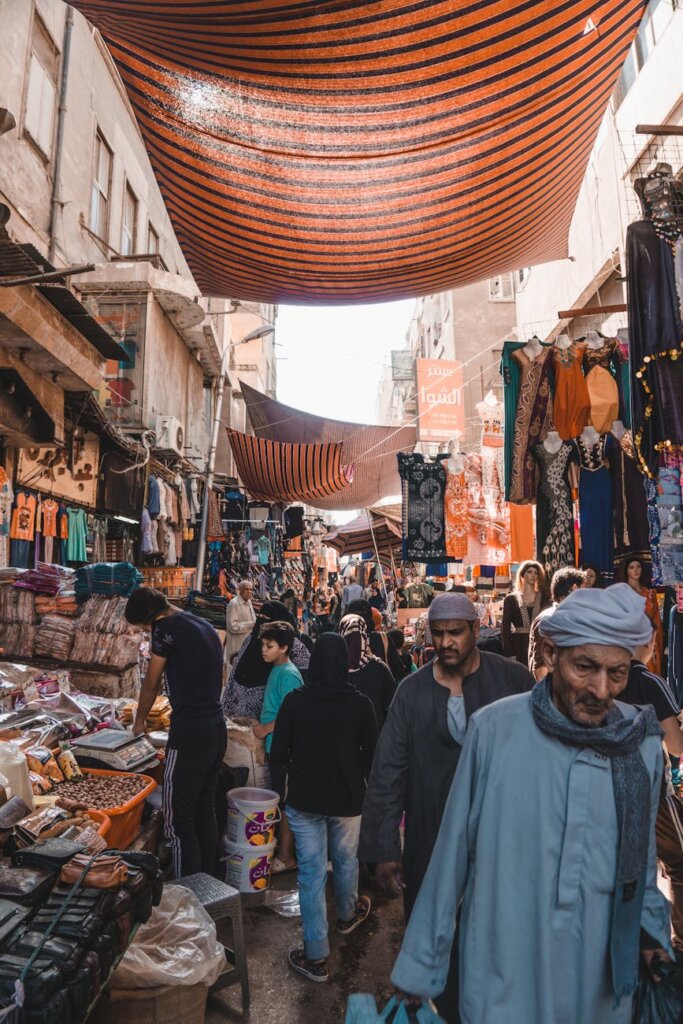
Tipping in Hotels and other Accommodation
Bellhops
Tip 50 -100 EGP per bag, depending on the hotel’s luxury level.
Housekeeping
For single night stays leave 100-200 in a visible spot in the room (e.g. on the pillow or desk). For multiple night stays leave 50-100 EGP per night.
Concierge
For standard assistance (e.g. booking a taxi), a tip isn’t necessary. For arranging a special service or itinerary, 100-500 EGP is appropriate depending on the complexity of the task.
Tipping in Luxury Hotels vs Family Run Businesses
There is a reason the idea of tipping makes me sweat! It is never straightforward and there are always additional nuances to take into consideration!
Luxury Hotels
While luxury hotels exude sophistication and often charge premium rates, the tipping practices in these establishments are not as straightforward as one might assume. Here’s what to consider:
Wages vs Tipping
Many travellers assume that employees at luxury hotels are well-paid, but this is not always true. In Egypt, even staff in high-end properties often rely on tips to supplement their incomes. A bellhop or housekeeper in a luxury resort might earn the same base wage as someone working in a mid-range hotel, making tips equally essential.
The Human Element
Taking time to engage with staff can enhance your stay and your understanding of local culture. Learning their names, chatting about their lives, or even asking about their favourite local spots can make a meaningful difference. Beyond monetary tips, meaningful interactions create connections that workers deeply appreciate.
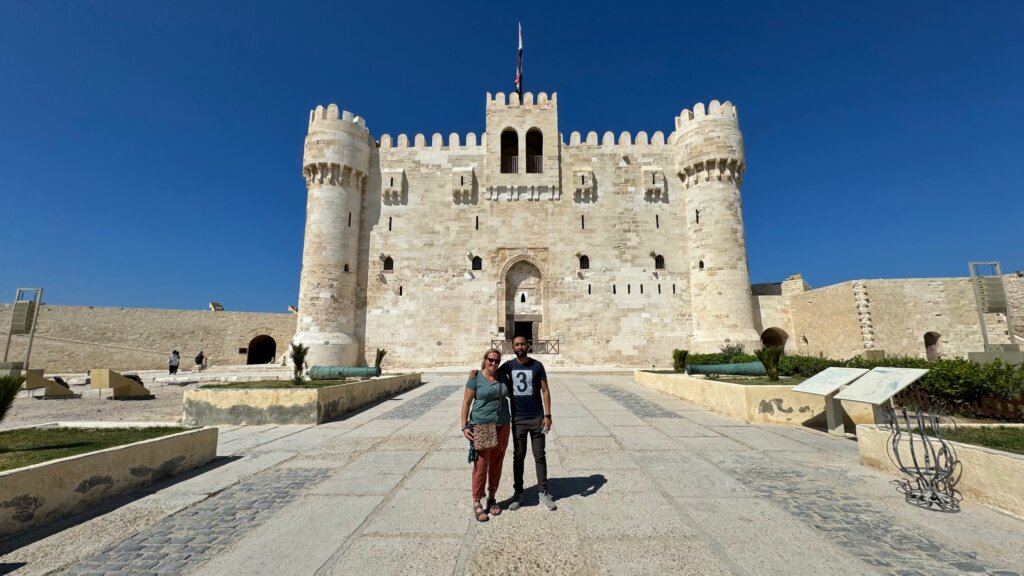
Consideration Beyond Cash Tips
While cash is the most direct form of tipping, thoughtful gestures can sometimes be equally valuable. For instance, if you notice a staff member working exceptionally hard or expressing an interest in learning, offering a recommendation letter for future roles could be life-changing. Equally, leaving a positive review that mentions staff members by name is another way to make an impact.
Family-Run Guesthouses
In family-owned establishments, tipping often feels more personal, as guests typically interact directly with the owners or their close-knit team. Here are some key considerations:
The Impact of Tips
Every contribution to a family-run business has a direct and often immediate impact on the family’s livelihood. A small tip can go further here than in a larger establishment, where pooled tipping can be common.
Non-Monetary Contributions
Sometimes, thinking outside the box can make a lasting difference. For example, during a stay at a family-run guesthouse in Tanzania, instead of tipping, I helped the family list their property on Airbnb. This small act brought them increased visibility and bookings, creating a long-term impact far greater than any single tip.
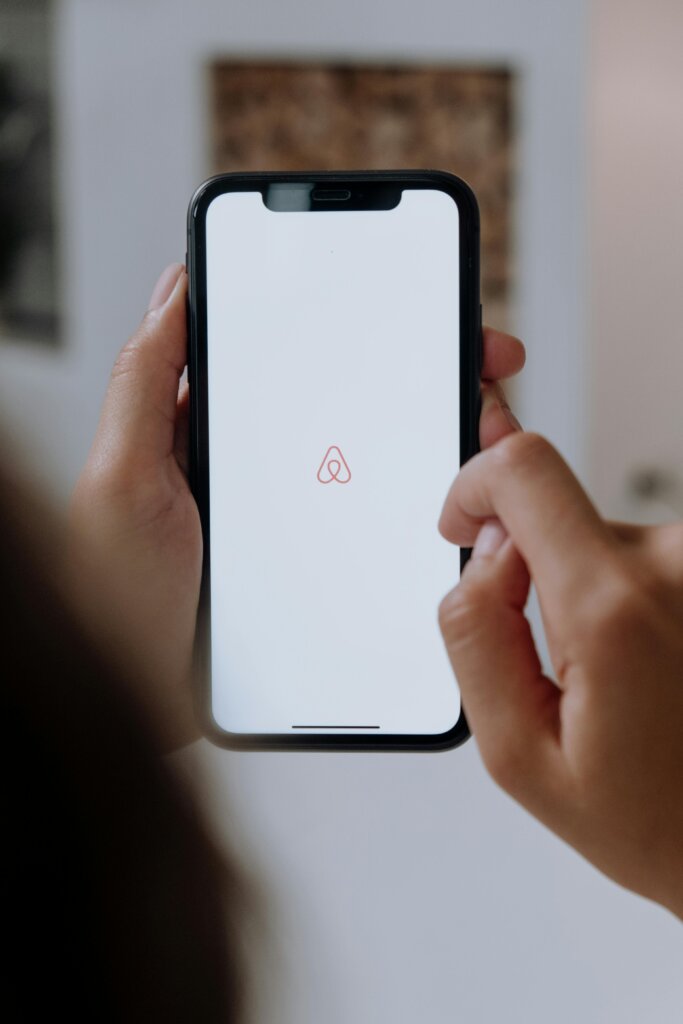
Building Relationships
Unlike luxury hotels, where interactions are often formal, guesthouses allow for more meaningful connections. You might find that inviting the family for tea or bringing a small gift from home is appreciated more than a traditional tip.
Looking for the best guest house in Cairo? Check out Pyramids Temple Guest House! For more recommendations, visit my blog on the best places to stay in Cairo.
Tipping at All-Inclusive Resorts
Tipping at all-inclusive resorts comes with its own set of challenges:
Service Charges vs Tipping
Many travellers assume that the service charge included in the bill covers all tipping. However, in Egypt, this charge often goes to the resort itself, not the individual staff. Adding small tips for waitstaff, bartenders, and housekeeping can show appreciation for their hard work.
Fair Distribution of Tips
In all-inclusive resorts, tipping can be tricky since you interact with many staff members across various departments. Consider tipping individuals directly if possible – such as leaving a small daily tip for housekeeping or tipping your favourite bartender after great service.
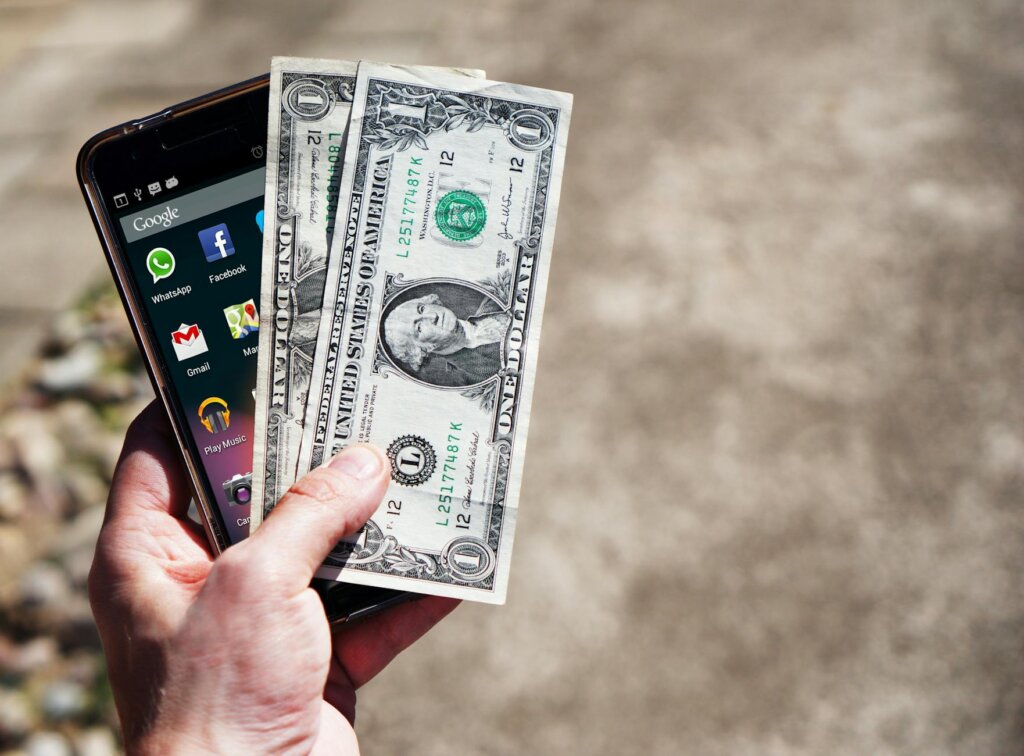
Fostering Genuine Connections
Despite the resort’s size and professionalism, staff members still appreciate personal gestures. A friendly conversation or acknowledgement of their efforts goes a long way, especially in environments where guests sometimes treat workers as invisible.
Budgeting Tips for Tipping in Egypt
Tipping can add up quickly, especially in a country like Egypt, where it’s customary in many situations. Planning ahead and budgeting for tips ensures you don’t run out of cash or feel uncertain about what to give. Here’s how to estimate your tipping costs effectively.
Research Your Itinerary
Break down your trip into activities – meals, tours, hotel stays, and transportation. For example, if you are doing a 5 day trip with multiple activities a day, you will want to set aside:
- $5-20 per day for your guide = $25-$100
- $2-$4 per night for hotel staff = $10-$20
- Often, meals are all-inclusive, and therefore, the cost and tips will be taken care of for you.
- Check whether the activities you are doing involve other guides. For example, if you are doing a camel ride, then you will want to tip the camel handler ($2-$3).
- You may wish to carry an additional $20-$40 for miscellaneous tipping (like bartenders and restroom attendants). You don’t have to use it all but it’s best to have it and not need it than not budget it for it and be left in an awkward situation.
Common Mistakes to Avoid in Egypt
Tipping in Egypt is an art as much as it is a custom. While the gesture is deeply appreciated, certain missteps can lead to awkward situations, misunderstandings, or unintended consequences. By avoiding these common mistakes, you’ll navigate Egypt’s tipping culture with confidence and respect.
Tipping Too Little or Too Much
The problem with tipping too little
Giving a tip that’s considered too small can unintentionally come across as dismissive or disrespectful. At best this can lead to simply offending an individual and putting a downer on their day, but at worst, it could lead to aggressive confrontations. That is why I have spent hours researching the subject and speaking to locals to give you a guide and avoid you the embarrassment.
The Problem with Over-Tipping
While it is easy to see the challenges that undertipping presents, overtipping can be a little more nuanced.
While generosity is always appreciated, over-tipping in Egypt can have unintended consequences that go beyond the monetary exchange. It’s important to understand the broader impact of over-tipping to ensure your actions benefit both you and the local community.

Distorting Local Tipping Norms
- Inflated Expectations: Over-tipping can raise the bar unrealistically for what service workers expect from future travellers. For example, if you tip a taxi the equivalent of $10 for a short ride that typically costs 50 EGP ($1), it may encourage the driver to expect similar amounts from other tourists, creating tension when those expectations aren’t met.
- Unfair Disparities Among Locals: Over-tipping can lead to a preference for serving tourists over locals, as tourists are perceived to give larger tips. This can disrupt the local economy, especially in smaller towns where locals may rely on the same services.
Creating Dependency on Tips
- Devaluing the Service Provided: When workers receive unusually large tips, it can inadvertently shift the focus away from providing excellent service to simply catering to tourists who tip generously. This can impact service quality over time. The US service industry is a prime example of this.
- Encouraging Inequality: Over-tipping can exacerbate income disparities between workers in tourist-facing roles and those in other industries. For example, a hotel porter who receives consistent over-tipping may earn significantly more than a local teacher or healthcare worker, which can create economic imbalances in the community.
Contributing to the Exploitation of Tourists
- Potential for Scams: Over-tipping reinforces the idea that tourists are willing to overpay, making them targets for scams or inflated pricing. Workers might demand tips in situations where isn’t typically expected, creating unnecessary pressure on travellers.
- Losing Trust in Interactions: Over-generosity can sometimes turn genuine interactions into transactional ones. For example, locals who might otherwise share cultural insights or stories might instead view the interaction solely as a way to earn a tip.
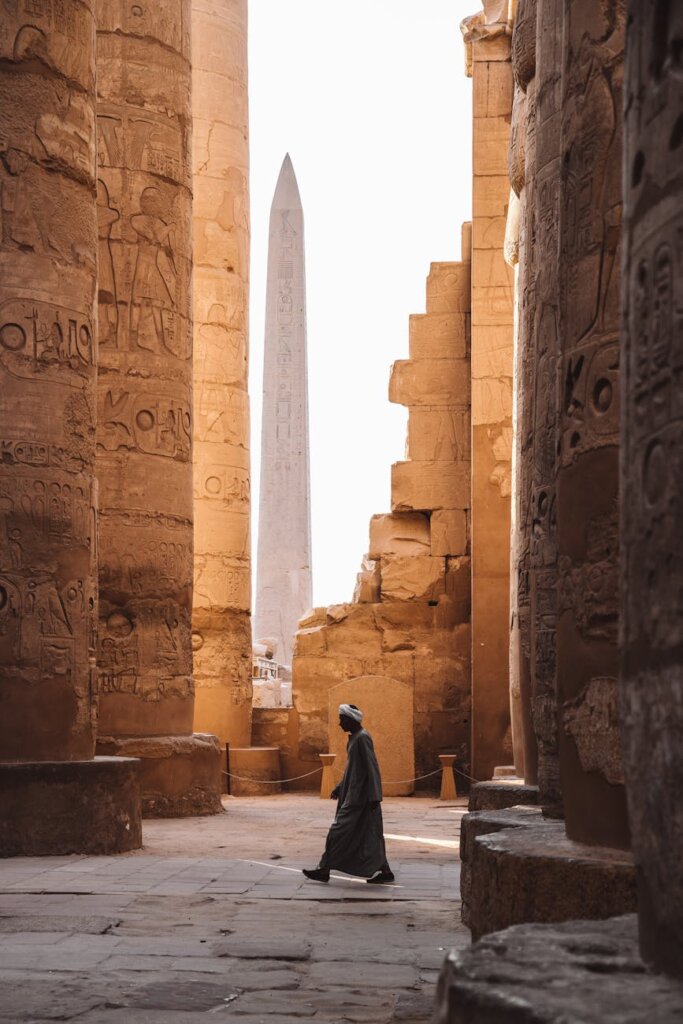
Impacting Future Travellers
- Rising Costs: Over-tipping can indirectly contribute to rising costs for services, as businesses may adjust their pricing to align with perceived tourist spending power. This can make travel less affordable for future visitors.
- Frustration Among Travellers: Over-tipping can create confusion for other tourists as tipping norms become inconsistent. Some may feel pressured to match what others have given, leading to discomfort and resentment.
How to Avoid Over-Tipping While Staying Generous
The fact you are reading this guide means you have taken the first most important step! But here are some additional tips:
- Stick to local tipping norms to show respect for cultural practices. I have provided a guide for every eventuality above.
- Carry small denominations to tip appropriately without overpaying.
- Focus on building genuine connections. Instead of tipping excessively, consider supporting the community in other ways, like purchasing local crafts or donating to a cause.
- When in doubt, ask locals or guides about appropriate tipping amounts to ensure your contributions are fair and beneficial.
By being mindful of your tipping habits, you can show gratitude in a way that uplifts individuals without unintentionally causing harm to the broader community.
Lets get back to common tipping mistakes to avoid when in Egypt! (Sorry, I have a habit of going off on a tangent!).
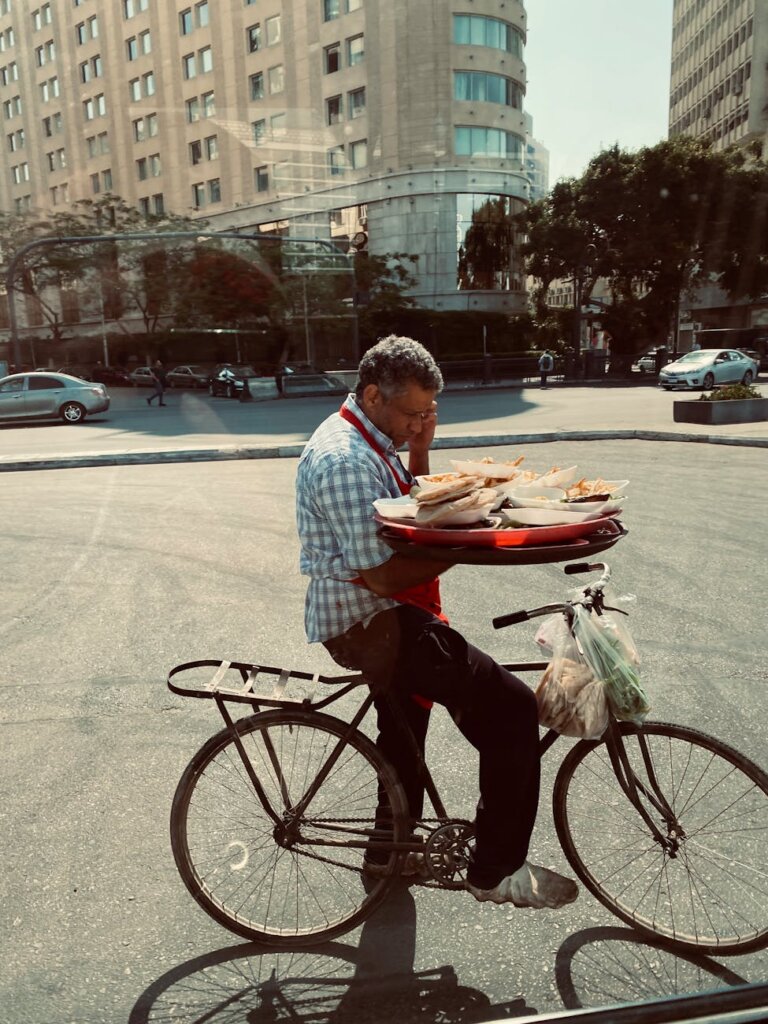
Forgetting to Tip in Less Obvious Situations
- Public restrooms: In many public restrooms, attendants are responsible for cleaning and maintaining the facilities. A small tip of 5-10 EGP is customary and appreciated, especially if they provide soap and tissues.
- Street Performers or Entertainers: If you stop to watch or photograph street performers, it’s polite to tip them a few EGP as a token of appreciation.
- Porters and Bag Handlers in Transit Areas: Whether at train stations, ferry terminals, or bus depots, porters who assist with luggage often rely on tips for their income. Aim for 20-50 EGP per bag.
Assuming Tipping Practices Are The Same Across Egypt as in Other Countries
- Different Countries, Different Norms: Many travellers apply tipping habits from their home country, but these might not align with Egyptian expectations. For example, in the US, tipping 20% at a restaurant is expected, while in Egypt, 10% is sufficient.
- Regional Variations Within Egypt: Even within Egypt, tipping expectations can vary. Urban areas like Cairo and Alexandria might have higher tipping norms than smaller towns or rural regions, where tips are generally lower but still meaningful.
By steering clear of these common mistakes, you’ll not only show respect for the local culture but also avoid unnecessary stress. Remember, tipping is about showing gratitude – not just monetary value.
When NOT to Tip
While tipping is customary in most situations, there are a few instances where it may not be necessary:
- Fixed-Priced Services: In places where prices are clearly stated and no additional service is provided – like at fast-food chains, supermarkets, or ticket counters – tipping is generally not expected. Employees in these roles are typically salaried and do not rely on tips as part of their income.
- Government Officials and Police: While there are anecdotes about tipping police or other officials, it’s important to note that this can be seen as a bribe in some cases, which is both unethical and illegal. Avoid tipping anyone in an official capacity unless it’s part of a recognised service (e.g. a porter at a government-run train station).
- Religious or Charitable Settings: If you’re visiting mosques, churches, or other places of worship, tipping staff or volunteers is usually inappropriate. Donations to the establishment are welcomed and encouraged but should be confused with tipping individuals.
- Self-Service Situations: When you’re handling tasks yourself – such as fuelling your car at a self-service station, using a self-checkout kiosk, or carrying your own luggage – there’s no need to tip. However, if someone offers to assist you, tipping them may be customary.
- Situations Where Tipping Could Offend: In rare cases, offering a tip may be seen as inappropriate or patronising, especially if someone perceives it as charity. For example, a skilled artisan selling their crafts in a market may prefer you to buy their good rather than offer a tip.
Remember, tipping is optional and should reflect good service!
- Poor Service: If the service provided doesn’t meet reasonable expectations, you’re not obliged to tip. While tipping is a way to show appreciation, it’s not a requirement, especially if the experience falls short.
- Pushy Requests: Avoid tipping in situations where individuals aggressively demand it without providing a service. For example, some street performers or self-appointed “guides” might pressure you for tips just for standing near you or pointing out something obvious.
Tipping is a way to show gratitude, not an obligation and should always reflect the service received. When in doubt, consider the context and ask a local or a guide for advice. By tipping thoughtfully, you’ll make a positive impression without risking cultural misunderstandings.
Navigating Currency and Conversions for Tipping in Egypt
Understanding currency and conversion is key to tipping confidently and appropriately in Egypt. Here’s how to handle Egyptian Pounds (EGP) and avoid confusion when tipping in a foreign currency.
Best Practices for Handling Egyptian Pounds (EGP)
- Always Carry Small Bills: Tipping typically involves small amounts, so it’s essential to have 10, 20 and 50 EGP notes handy. Larger denominations can make tipping awkward, as many workers may not have change. Plus, it feels a little odd asking them for money back!
- Break Larger Bills Early: Upon arrival, break down larger denominations into smaller bills at your hotel or bank, or a reputable currency exchange. Alternatively, go buy something!
- Use Cash, Not Cards: Tipping is primarily a cash-based practice in Egypt. Credit cards are rarely used for gratuities, even in higher-end establishments.
- Withdraw in Local Currency: ATMs are widely available in Egypt and provide the best exchange rates. Ensure your bank card is compatible with international withdrawals before your trip, and ideally, use a card that doesn’t charge international transaction fees. My go to is Monzo!
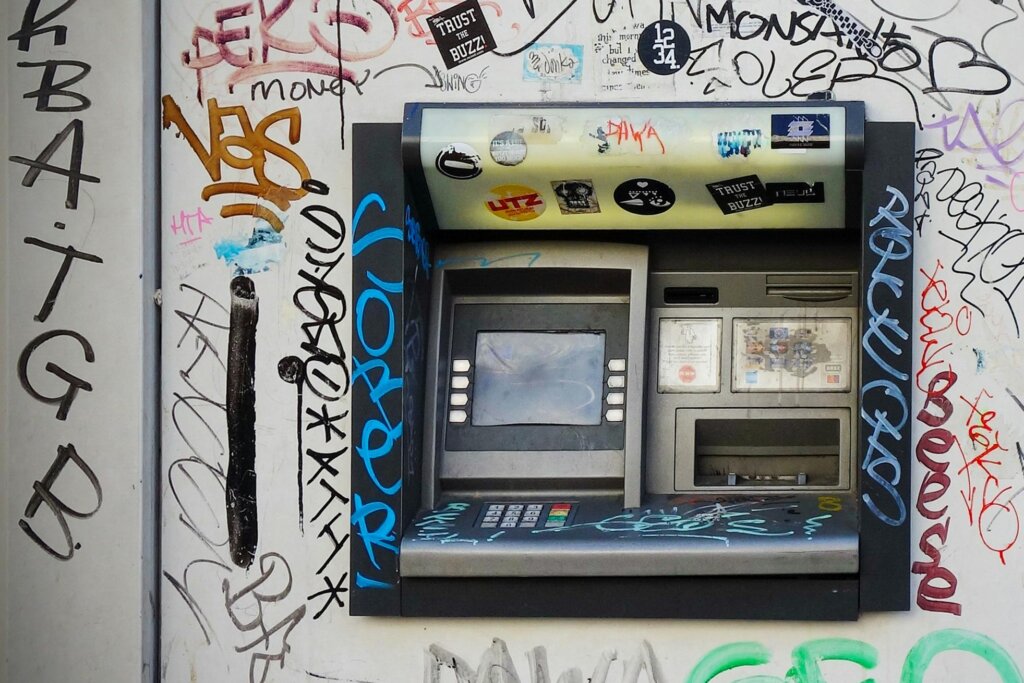
Why Tipping in Local Currency is Preferred
- Ease for Recipients: Most local workers rely on local currency for their daily expenses. Foreign currencies, especially small denominations, can be difficult for them to exchange and are often undervalued at exchange services. During a tour of Copic Cairo, an old lady asked me to exchange $10 worth of $1 bills for her as the Bureau de Change would not exchange them for her.
- Avoid Exchange Hassles: Offering foreign currency forces the recipient to go through the trouble of converting it, which can reduce the actual value of your tip.
- Cultural Considerations: Tipping in EGP demonstrates respect and understanding of local customs. It shows that you’ve taken the time to integrate into the culture rather than imposing your own norms.
There are some exceptions to this, though. For example, Khaled, who organises the non-tour tour of Cairo (which is excellent, by the way), prefers to be tipped in a foreign currency because he travels a lot, and getting foreign currency at a good exchange rate in Cairo can be challenging. So, as always, the key is to get to know the people; that way, you can provide them with what is best for them.
The best App for Working Our Currency Exchange
Although I love maths, mental arithmetics are not my strong point, and trying to work out exchange rates that are not a simple division doesn’t come easy. As a result, I have made mistakes over the years, both overvaluing and undervaluing the worth of my tip. Since I’ve discovered the XE App, this is no longer an issue, and best of all, I can list all the currencies that are relevant to me in the app, meaning I can see EU, GBP, USD and the local currency all at the same time.
What to Do if You Can’t Tip in Egypt
There is nothing worse than being in a situation where you want to tip, or feel you should tip, but can’t. Maybe you have no money, or maybe you don’t have enough money. What do you do then?
Non-Monetary Alternatives
- Small Gifts: Thoughtful items like snacks, postcards, or souvenirs from your home country can be well-received, especially in rural areas.
- Personal Gratitude: A genuine smile, heartfelt “thank you” (or even better “shukran” in Arabic), and a kind word can go a long way. Personal appreciation is especially valuable when paired with attentive acknowledgement of someone’s effort.
- Referrals or Recommendations: If you’ve had a great experience, sharing it with others is an excellent way to give back. For example:
- Leave a Positive Review: Write about their service on TripAdvisor, Google or Social Media
- Word of Mouth: Recommend them to friends and fellow travellers
- Social Media Shoutouts: Tag them in your posts or stories if they’re connected to a business.
- Offer Practical Help: If you’re staying at a family-run guesthouse or using a local service, consider helping in ways that can benefit them long term. For example:
- Helping with IT skills: Set them up with an online presence, such as creating a listing on Airbnb or Google My Business.
- Provide Advice: Do you have an area of expertise. Share your knowledge with them. Maybe you can help them translate their website into better English, or show them how to get better reach on social media. Maybe you are a great photographer and can get some better images for them.

Communicating Respectfully When Tipping Isn’t Possible
- Be Honest and Polite: If you’re unable to tip due to a lack of cash or another reason, be honest. A simple explanation like “I’m sorry, I don’t have any cash on me” paired with gratitude is often enough.
- Acknowledge the Effort: Even if you can’t offer a tip, acknowledging a person’s hard work and thanking them sincerely demonstrates respect.
- Plan to Tip Later: If you forget or don’t have cash on hand, you can often return later to tip. Many Egyptians are forgiving if they see your genuine intent to make it right.
My Final Thoughts on the Art of Tipping in Egypt
Tipping in Egypt is more than a financial gesture – it’s a way to connect with locals, show appreciation, and play a role in the livelihoods of the people who make your journey unforgettable. By understanding the nuances of tipping culture, you can navigate this practice confidently and thoughtfully.
Tipping responsively doesn’t just benefit those providing you with services – it can also deepen your travel experience by fostering goodwill and cultural exchange. A simple gesture of gratitude can lead to meaningful interactions, memorable moments, and even lifelong friendships.
Remember, tipping isn’t about extravagance; it’s about respect and reciprocity. Whether it’s a small token of appreciation or a heartfelt thank you, your actions can make a significant impact on someone’s day and livelihood.
We Want to Hear From You
Have you travelled to Egypt before? What’s your most memorable with tipping? Share your stories, lessons learned, or questions in the comments below. Your insights could inspire and guide fellow travellers planning their own adventures in this remarkable country.
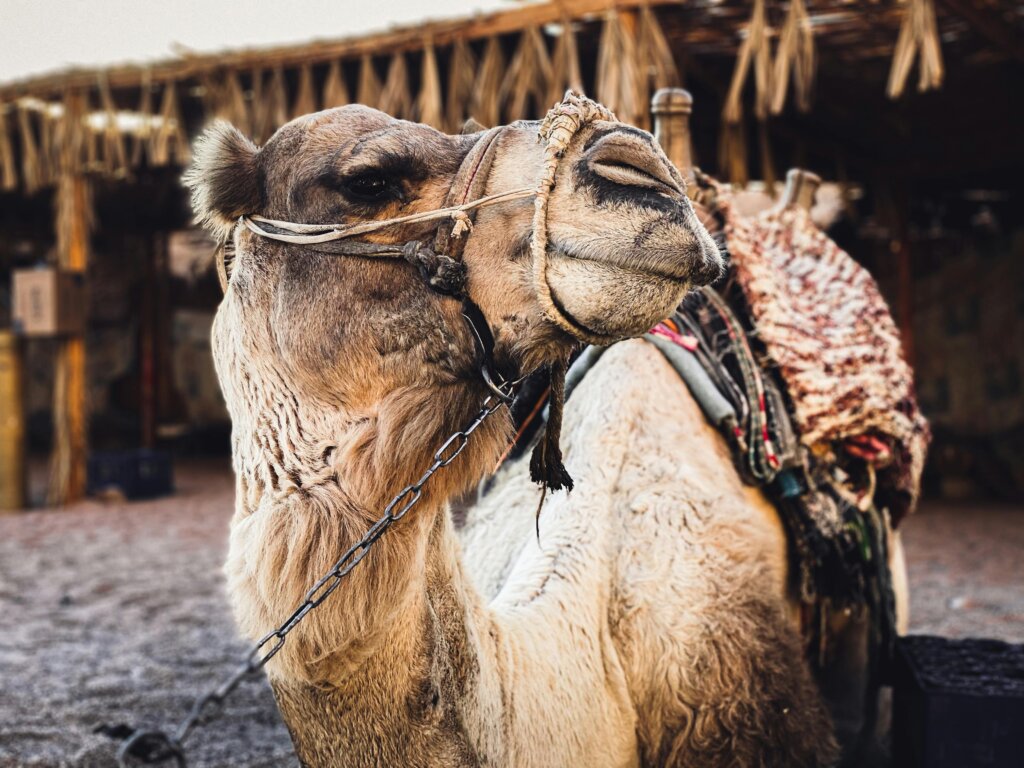
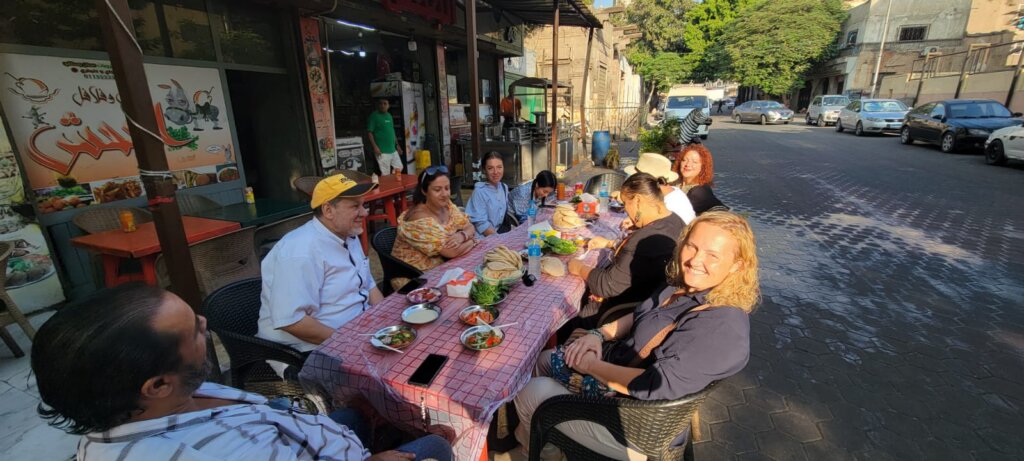
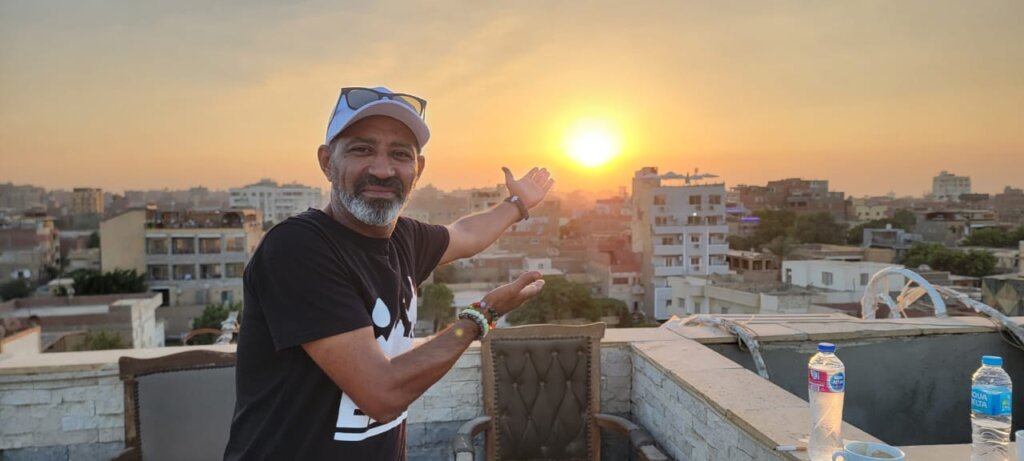
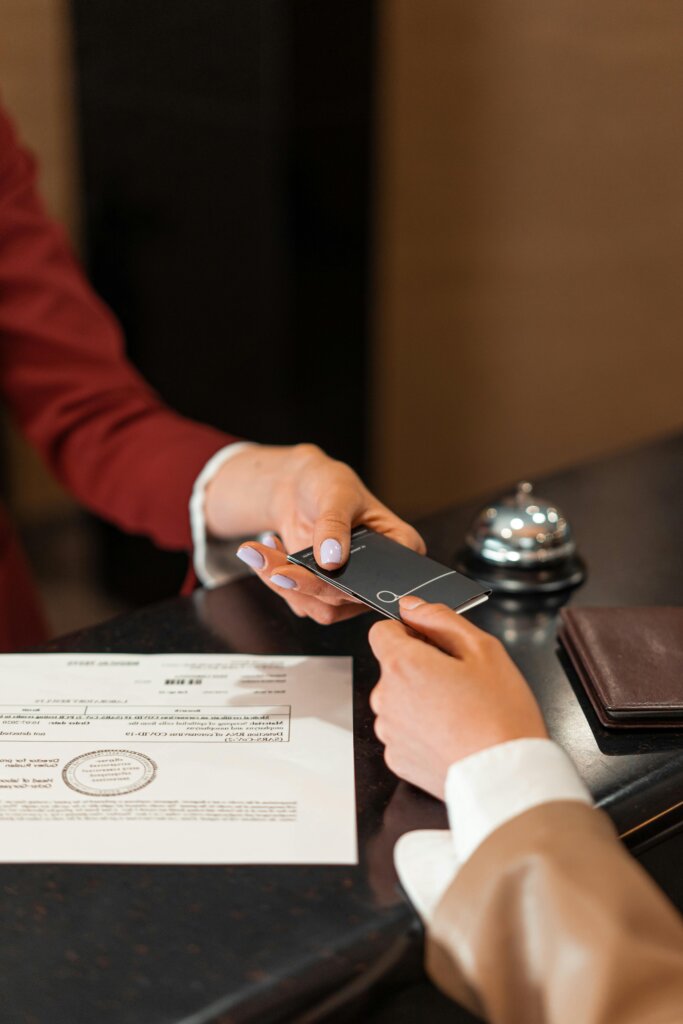
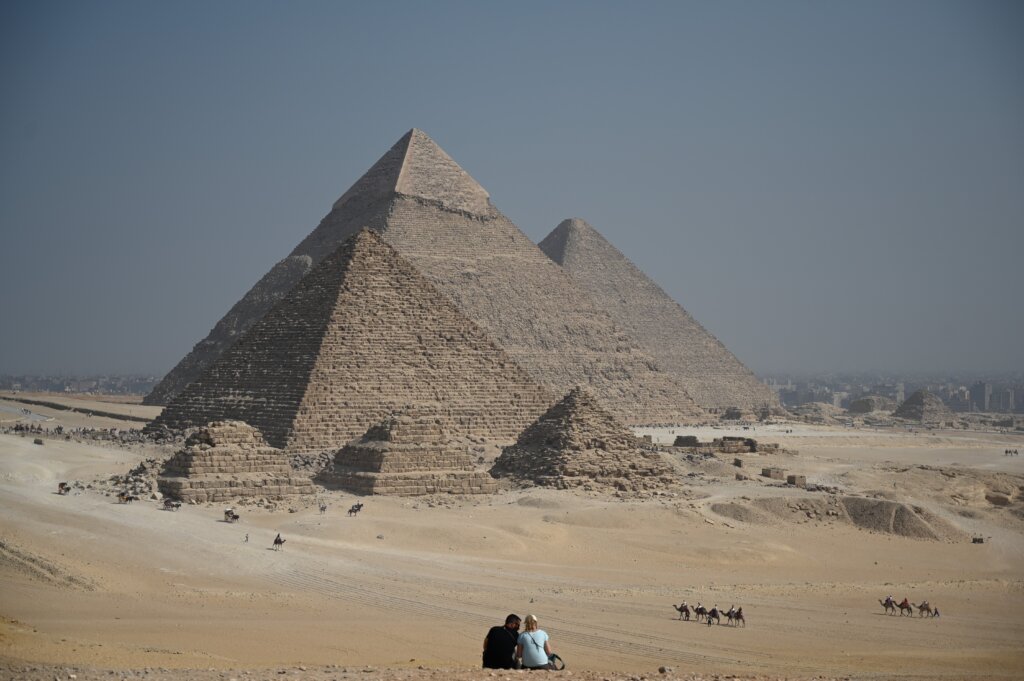
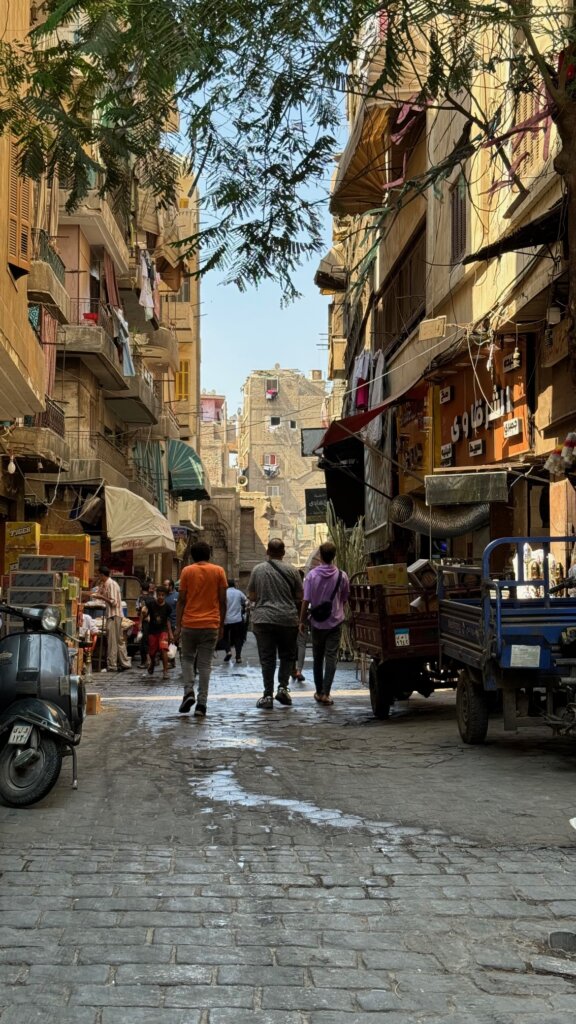
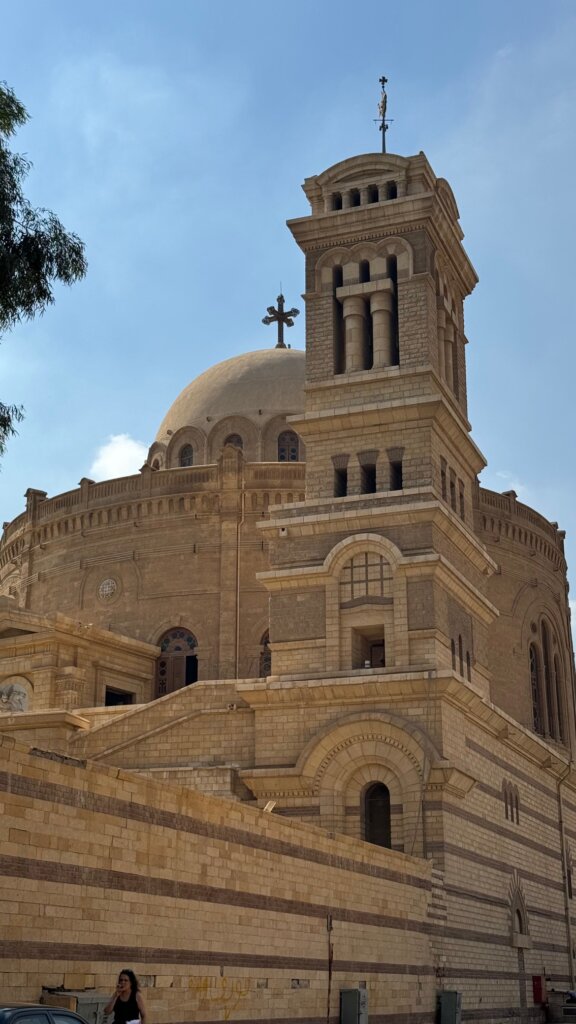
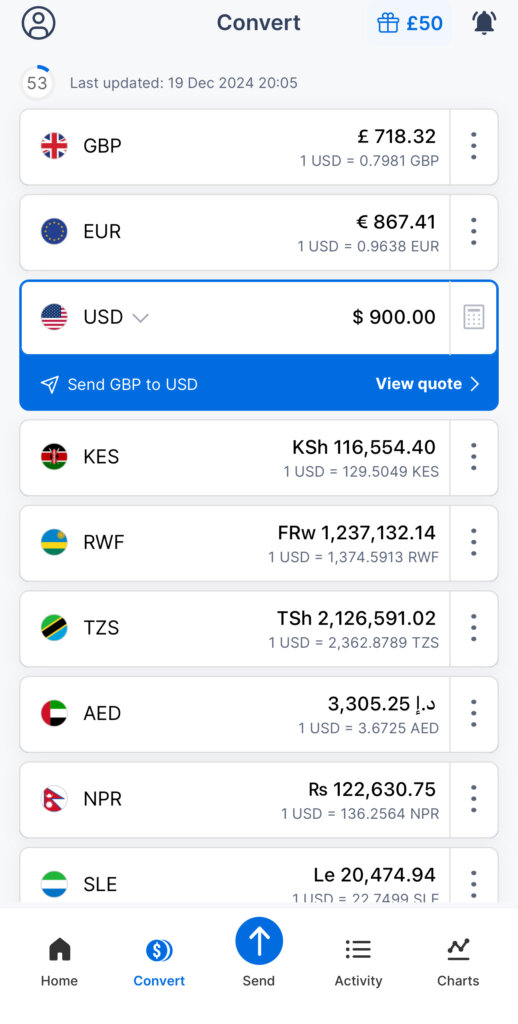

Comments will load here
Be the first to comment